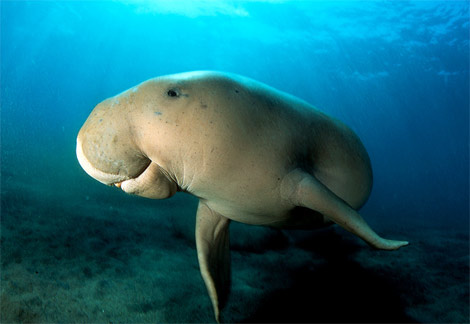Living quickly as they do off the coast of
South African dugong expert Paul Dutton, who worked for the Endangered Wildlife Trust and the South African Nature Foundation in Bazaruto for five years, estimated that there are n mere 40 dugongs left. This is far lower than the estimated of 110 dugongs recorded by the World Wildlife Found For Nature (WWF) in 1990. “Sadly, these optimistic reports make it difficult to find support and improve management,” said Dutton.
The demise of the dugongs has not been brought about through hunting though. According to Dutton, “they get entangled in nets licensed by fishing authorities and, if caught, for instance by port captain in Vilankulo, they are eaten.” Dutton tells of a time this particular port captain tried to serve a dugong to President Chissano at a luncheon in
Inhassoro. “Fortunately, I managed to forewarn the president, and he was able to berate the captain.
Dugongs do have one ally thought: tourists. Since the end of the civil war,
“If some of the tourist income in this area could be used to promote the dugong as a flagship species, perhaps they can be spared extinction,” said Dutton.









No comments:
Post a Comment